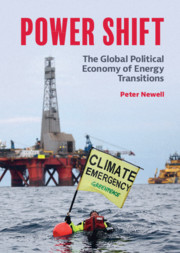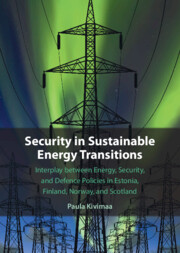Power Shift
Energy transitions are fundamental to achieving a zero-carbon economy. This book explains the urgently needed transition in energy systems from the perspective of the global political economy. It develops an historical, global, political and ecological account of key features of energy transitions: from their production and financing, to how they are governed and mobilised. Informed by direct engagement in projects of energy transition, the book provides an accessible account of the real-world dilemmas in accelerating transitions to a low carbon economy. As well as changes to technology, markets, institutions and behaviours, Power Shift shows that shifts in power relations between and within countries, and across social groups and political actors, are required if the world is to move onto a more sustainable path. Using contemporary and historical case studies to explore energy transitions, it will be of interest to students and researchers across disciplines, policymakers and activists.
- Inter-disciplinary account of the global politics of energy transitions, drawing on insights from history, political economy, international relations, geography, history, science and technology studies
- Uses real-world empirical examples and case studies from a range of sectors, regions and historical periods
- Covers key dimensions of energy transitions: how they are produced, financed, governed and mobilised, showing how these different dimensions of energy transitions intersect in practice while exploring the historical, global, political economy and ecological aspects of each
Reviews & endorsements
'Peter Newell brilliantly shows how power and purpose need to come together to effectuate change in the way we produce, finance and govern energy. The book is an indispensable resource for understanding what it takes to go low carbon.' Andreas Goldthau, Willy Brandt School of Public Policy, University of Erfurt
'A cogent and timely analysis of one of the most central issues of our time: how to rapidly, deeply and fairly decarbonize the world economy? Rooted in a critical global political economy framework, Power Shift deftly unravels the interconnections between shifts in political power and key dimensions of energy transitions - from production to finance and from governance to mobilisation. This book is essential reading for all scholars and students of global energy politics, climate change, as well as international political economy more broadly.' Thijs Van de Graaf, Ghent University
'A genuine masterpiece in its comprehensive global coverage, and it's rich, interdisciplinary approach. I have never before seen a book tie so well together theoretical frameworks, history, politics, finance, governance, justice and purposive action. It's an encyclopaedia of knowledge about the global political economy of energy expressed in an easy to read, and even enjoyable, style. A much-needed book informing this critical moment of the global energy transition.' Benjamin K. Sovacool, Aarhus University
'Peter Newell has done it again! Power Shift is a must-read for students, and others, interested in current attempts to steer society towards a lower carbon future that is equitable and just. It provides a comprehensive global account of how and why sustainable transitions are taking place. Most importantly, however, it also explicitly highlights the important power shifts within global capitalism that are already resulting from sustainable transitions.' Caroline Kuzemko, University of Warwick
'timely and welcome … an important book that deserves to be read widely for its cogent analysis of the stakes involved in energy transition and its concrete engagement with the questions of what should and can be done, and how to do so equitably.' Joshua K. McEvoy, International Journal: Canada's Journal of Global Policy Analysis
'Recommended.' T. Brennan, Choice
Product details
April 2021Hardback
9781108832854
350 pages
150 × 250 × 25 mm
0.68kg
Available
Table of Contents
- 1. Introduction: the global political economy of energy transitions
- 2. Theorising energy transitions
- 3. Producing
- 4. Financing
- 5. Governing
- 6. Mobilising energy transitions
- 7. Conclusions.





